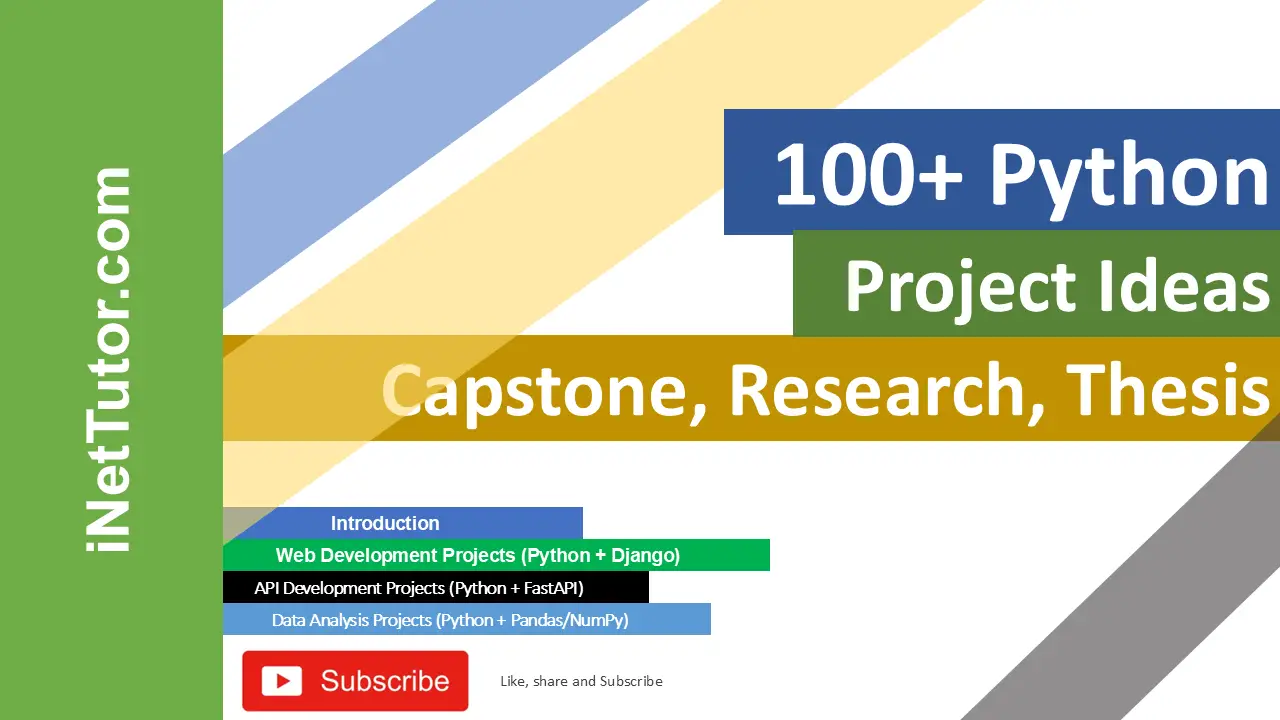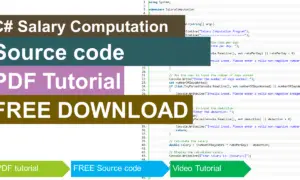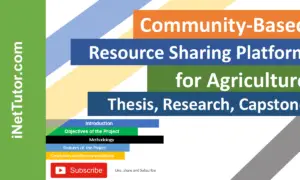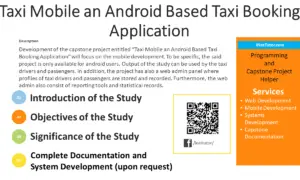Google’s Agent Development Kit Project Idea
Introduction to the Agent Development Kit and the Project Idea
Table of Contents
- Introduction to the Agent Development Kit and the Project Idea
- Why Choose the Agent Development Kit for a Personal Finance Assistant?
- Project Idea: A Multi-Agent Personal Finance Assistant with the Agent Development Kit
- Technical Design and Implementation Using the Agent Development Kit
- Challenges, Solutions, and Future Potential of the Agent Development Kit Project
- Getting Started with the Agent Development Kit
- Conclusion
Imagine juggling budgeting, tracking expenses, paying bills on time, and researching investment options—all while managing a busy schedule. What if a team of AI agents could handle these tasks seamlessly? Enter Google’s Agent Development Kit (ADK), a powerful open-source Python framework unveiled at Google Cloud Next 2025, designed to build, manage, and deploy multi-agent AI systems. The Agent Development Kit empowers developers to create collaborative AI agents that tackle complex workflows, making it ideal for real-world applications like personal finance management.
In this blog post, we’ll explore a project idea: a multi-agent personal finance assistant powered by the Agent Development Kit. This system will feature specialized AI agents for budgeting, expense tracking, bill reminders, and investment suggestions, all working together to simplify financial planning. We’ll dive into why ADK is the perfect tool for this project, outline the technical design, address challenges, and highlight the project’s potential impact. Whether you’re a developer eager to experiment with the Agent Development Kit, an AI enthusiast, or someone looking to streamline your finances, this post will inspire you to harness ADK’s capabilities.
The Agent Development Kit stands out for its flexibility, allowing developers to create custom agents, integrate with over 100 pre-built connectors, and deploy scalable solutions on Google Cloud. For personal finance, ADK’s ability to orchestrate multiple agents via the Agent2Agent (A2A) protocol ensures seamless collaboration, delivering personalized insights to users. By the end of this post, you’ll have a clear roadmap to build your own finance assistant using the Agent Development Kit, along with resources to get started. Let’s unlock the potential of AI agents and transform how we manage money!

Why Choose the Agent Development Kit for a Personal Finance Assistant?
The Agent Development Kit (ADK) is a game-changer for developers building AI-driven solutions, and it’s particularly well-suited for a multi-agent personal finance assistant. Launched as an open-source Python framework, the Agent Development Kit enables the creation of modular, interoperable AI agents that can handle specialized tasks while collaborating seamlessly. Its key features make it an ideal choice for a project that requires multiple agents to manage budgeting, expense tracking, reminders, and investment planning.
First, the Agent Development Kit offers a code-first approach, allowing developers to define agents with Python classes like LlmAgent, WorkflowAgent, or BaseAgent. This flexibility is crucial for a personal finance assistant, where each agent needs distinct capabilities. For example, a Budget Agent might use a large language model (LLM) like Gemini 2.5 Pro to analyze income and expenses, while an Expense Agent could leverage custom logic to categorize transactions from financial APIs like Plaid. The Agent Development Kit also supports over 100 pre-built connectors, enabling integration with tools like BigQuery for data storage or external APIs for real-time market data.
Second, ADK’s Agent2Agent (A2A) protocol ensures that agents can communicate efficiently, a critical feature for our project. In the finance assistant, a Host Agent coordinates tasks by sending requests to specialized agents via /run endpoints, ensuring smooth collaboration. This interoperability extends beyond ADK, as the A2A protocol allows agents to interact with other frameworks, future-proofing the system. The Agent Development Kit also simplifies session state management with services like InMemorySessionService, maintaining user context across interactions—a must for personalized financial advice.
Deploying the assistant is straightforward with the Agent Development Kit, thanks to its integration with Google Cloud platforms like Cloud Run and Vertex AI Agent Engine. Developers can test agents locally using adk web or adk run, then scale them to handle thousands of users. For a personal finance assistant, this means delivering real-time insights, such as budget alerts or investment suggestions, without latency. The open-source nature of the Agent Development Kit (Apache 2.0 license) encourages community contributions, ensuring continuous improvements and access to sample agents via the ADK Samples repository.
Finally, the Agent Development Kit addresses security, a top concern for financial applications. By leveraging Google Cloud’s Identity and Access Management (IAM) and encryption, developers can protect sensitive user data. For our project, this ensures that transaction histories and investment profiles remain secure. With these features, the Agent Development Kit not only simplifies development but also delivers a robust, scalable, and secure solution for personal finance management.
Project Idea: A Multi-Agent Personal Finance Assistant with the Agent Development Kit
The Agent Development Kit shines in projects that require multiple AI agents to collaborate on complex tasks, and a multi-agent personal finance assistant is a perfect example. This project envisions a system of specialized agents—Budget Agent, Expense Agent, Reminder Agent, Investment Agent, and Host Agent—working together to streamline financial management. Powered by the Agent Development Kit, this assistant helps users create budgets, track spending, stay on top of bills, and explore investment options, all through an intuitive Streamlit-based interface.
The Budget Agent, built with the Agent Development Kit’s LlmAgent class, uses a Gemini 2.5 Pro model to analyze user income and expenses, generating a monthly budget tailored to their goals (e.g., saving for a vacation). It processes inputs like salary and recurring costs, offering insights like, “Allocate 30% of your income to savings.” The Expense Agent, a custom BaseAgent, integrates with financial APIs (e.g., Plaid) to fetch and categorize transactions into buckets like groceries, utilities, or entertainment. It flags anomalies, such as unusually high spending, and shares data with the Budget Agent for real-time adjustments.
The Reminder Agent, a WorkflowAgent in the Agent Development Kit, follows a sequential workflow to schedule and send bill payment alerts via email or SMS, ensuring users never miss a due date. The Investment Agent, another LlmAgent, pulls market data from APIs like Alpha Vantage and provides basic investment suggestions based on the user’s risk profile (e.g., “Consider low-risk ETFs for steady growth”). The Host Agent, the system’s orchestrator, uses the Agent Development Kit’s A2A protocol to route tasks and aggregate outputs, ensuring all agents work in sync.
The user interacts with the system through a Streamlit frontend, where they can input financial data, view budget breakdowns, and receive notifications. The Agent Development Kit’s session management ensures continuity, so users pick up where they left off. Data is stored securely in BigQuery, leveraging ADK’s connectors for efficient querying. The system is deployable on Cloud Run, making it scalable for individual or multi-user scenarios, such as family budgeting.
This project showcases the Agent Development Kit’s ability to handle real-world challenges. By automating repetitive tasks like expense tracking and providing actionable insights, the assistant saves time and empowers users with limited financial expertise. Its modular design allows developers to extend functionality, such as adding tax preparation or debt repayment features. With the Agent Development Kit, building this assistant is not only feasible but also an exciting opportunity to explore the future of AI-driven finance.
Technical Design and Implementation Using the Agent Development Kit
Building a multi-agent personal finance assistant with the Agent Development Kit (ADK) requires a clear technical design and implementation plan. The Agent Development Kit simplifies this process with its modular framework, robust tooling, and Google Cloud integrations. Below, we outline the architecture, setup, and development steps to bring this project to life, leveraging ADK’s capabilities for seamless agent collaboration and deployment.
Prerequisites: Developers need Python 3.9+, a Google Cloud account with Vertex AI API enabled, and the Agent Development Kit installed via pip install google-adk. Optional APIs like Plaid (for transactions) and Alpha Vantage (for market data) enhance functionality. Set up a Google Cloud project, configure environment variables in a .env file, and enable billing for API access.
Agent Architecture: The system comprises five agents, each built with the Agent Development Kit:
- Budget Agent (LlmAgent): Uses Gemini 2.5 Pro to generate budgets. Its system prompt defines its role: “Create a monthly budget based on user income and expenses.”
- Expense Agent (BaseAgent): Custom logic fetches transactions via Plaid, categorizes them, and detects anomalies.
- Reminder Agent (WorkflowAgent): Schedules notifications using a sequential workflow, integrating with Twilio for SMS.
- Investment Agent (LlmAgent): Queries market APIs and suggests investments based on user preferences.
- Host Agent: A FastAPI-based controller that uses the Agent Development Kit’s A2A protocol to orchestrate tasks via /run endpoints.
Session State: The Agent Development Kit’s InMemorySessionService maintains user context, such as budget goals or transaction history, across interactions. For production, developers can switch to a persistent store like BigQuery.
Tools and Integrations: The Agent Development Kit provides pre-built tools for data retrieval (e.g., BigQuery for transaction storage) and custom tools for API calls. For example, the Expense Agent uses a Plaid tool to fetch transactions, while the Investment Agent queries Alpha Vantage. The Streamlit frontend, integrated via ADK’s development UI, displays budgets and alerts.
Development Workflow:
- Setup: Clone the ADK Samples repository and install dependencies.
- Write Agents: Define each agent’s logic in Python, using ADK’s classes. Example for Budget Agent:
from google.adk.agents import LlmAgent from google.generativeai import GenerativeModel project_id = "your-gcp-project" model_name = "gemini-2.5-pro" llm = GenerativeModel(model_name, project=project_id) budget_agent = LlmAgent( llm=llm, system_prompt="You are a financial assistant that creates monthly budgets." )
- Test Locally: Use adk web for the development UI or adk run for terminal testing.
- Deploy: Package the system with Docker and deploy to Cloud Run for scalability.
Security: The Agent Development Kit integrates with Google Cloud’s IAM for authentication and encryption for data protection. Store sensitive data (e.g., API keys) in Secret Manager.
This implementation leverages the Agent Development Kit’s strengths—modularity, scalability, and interoperability—to create a robust finance assistant. Developers can iterate by adding features like voice mode or predictive analytics, all within ADK’s flexible framework.
Challenges, Solutions, and Future Potential of the Agent Development Kit Project
Building a personal finance assistant with the Agent Development Kit (ADK) is exciting but comes with challenges. Addressing these ensures a robust, user-friendly system and highlights ADK’s versatility. Let’s explore key challenges, their solutions, and the project’s potential impact, all while leveraging the Agent Development Kit’s capabilities.
Challenge 1: Data Security: Financial data is sensitive, and breaches could erode user trust. The Agent Development Kit integrates with Google Cloud’s IAM and encryption tools to secure data in transit and storage. Developers should store API keys in Secret Manager and encrypt transaction data in BigQuery. Regular audits and compliance with regulations like GDPR or CCPA further enhance security.
Challenge 2: Accurate Expense Categorization: Misclassifying transactions (e.g., labeling a coffee purchase as groceries) reduces the system’s reliability. The Agent Development Kit’s BaseAgent allows custom logic for the Expense Agent, which can be trained on sample transaction data to improve accuracy. User feedback loops, enabled via the Streamlit UI, refine categorization over time. ADK’s integration with Vertex AI could also support machine learning models for advanced classification.
Challenge 3: Session State Complexity: Maintaining user context across agents is critical but challenging. The Agent Development Kit’s InMemorySessionService is a starting point, but for production, developers should implement a persistent store like Firestore. ADK’s documentation could improve here, and community contributions (encouraged by ADK’s open-source model) may simplify session management in future releases.
Challenge 4: API Rate Limits: Financial APIs like Plaid or Alpha Vantage have rate limits, which could slow the system. The Agent Development Kit’s tooling supports caching API responses in BigQuery, reducing redundant calls. Developers can implement retry logic and exponential backoff to handle rate limit errors gracefully.
Solutions in Action: By leveraging the Agent Development Kit’s connectors, security features, and modular design, these challenges become manageable. For example, the Host Agent’s A2A protocol ensures efficient task routing, minimizing latency even with API constraints. The open-source community around ADK provides sample code and best practices, accelerating development.
Future Potential: This project has significant real-world impact. It saves users time by automating budgeting and expense tracking, offering insights like, “You’re overspending on subscriptions.” Its scalability, enabled by the Agent Development Kit and Cloud Run, supports small businesses or multi-user scenarios like family budgeting. Developers can extend the system with features like tax preparation, debt repayment planning, or voice mode via ADK’s Gemini integration. Predictive analytics, powered by Vertex AI, could forecast spending trends, enhancing the assistant’s value.
The Agent Development Kit also fosters community innovation. By sharing this project on GitHub under Apache 2.0, developers can collaborate, adding features or optimizing agents. Feedback to ADK’s documentation could improve beginner-friendliness, benefiting the ecosystem. Ultimately, this project showcases how the Agent Development Kit empowers developers to solve everyday problems with AI, paving the way for smarter, more accessible financial tools.
Getting Started with the Agent Development Kit
Ready to build your own multi-agent personal finance assistant with the Agent Development Kit (ADK)? This section provides a step-by-step guide to get started, leveraging ADK’s open-source framework and Google Cloud integrations. Whether you’re a seasoned developer or an AI enthusiast, the Agent Development Kit makes it easy to create powerful AI agents. Let’s dive into the tools, resources, and first steps to bring this project to life.
Why Start Now? The Agent Development Kit, launched at Google Cloud Next 2025, is gaining traction for its flexibility and scalability. Its Python-based framework, combined with over 100 pre-built connectors, empowers developers to build multi-agent systems like our finance assistant with minimal setup. The open-source model (Apache 2.0) and active community ensure ongoing support and innovation, making this an ideal time to experiment.
Step 1: Set Up Your Environment
- Install Python 3.9+ and the Agent Development Kit via pip install google-adk.
- Create a Google Cloud project, enable the Vertex AI API, and set up billing (new users get $300 in free credits).
- Configure environment variables in a .env file, including your Google Cloud project ID and API keys for Plaid or Alpha Vantage.
- Clone the ADK Samples repository from GitHub for reference code: https://github.com/google/adk-python.
Step 2: Explore the Agent Development Kit Documentation
The Agent Development Kit Quickstart Guide (https://cloud.google.com/vertex-ai/docs/generative-ai/agents/quickstart) walks you through creating a basic agent. Key concepts include:
- LlmAgent: For tasks requiring reasoning, like budgeting or investment advice.
- WorkflowAgent: For sequential tasks, like sending reminders.
- BaseAgent: For custom logic, like expense categorization.
- A2A Protocol: For agent communication via /run endpoints.
Step 3: Build a Simple Agent
Start with a single agent to familiarize yourself with the Agent Development Kit. For example, create a Budget Agent:
from google.adk.agents import LlmAgent from google.generativeai import GenerativeModel project_id = "your-gcp-project" model_name = "gemini-2.5-pro" llm = GenerativeModel(model_name, project=project_id) budget_agent = LlmAgent( llm=llm, system_prompt="Generate a monthly budget based on user income and expenses." )
Test it locally with adk run or adk web to interact via a UI.
Step 4: Expand to Multi-Agent System
Follow the technical design from Section 4 to add Expense, Reminder, Investment, and Host Agents. Use the Agent Development Kit’s connectors for BigQuery and APIs, and deploy to Cloud Run for scalability. The Streamlit frontend, integrated via ADK, provides a user-friendly interface.
Resources:
- ADK GitHub: https://github.com/google/adk-python for code and issues.
- Google Cloud Free Tier: Sign up for credits to experiment.
- Community: Join discussions on Reddit (r/AI_Agents) or GitHub for support.
Next Steps: Iterate by adding features like voice mode or predictive analytics. Share your project on GitHub to contribute to the Agent Development Kit community. By starting small and leveraging ADK’s tools, you’ll quickly build a powerful finance assistant that showcases the future of AI agents.
Conclusion
The Agent Development Kit (ADK) unlocks a world of possibilities for building AI-driven solutions, and our multi-agent personal finance assistant is a prime example. By harnessing the Agent Development Kit’s modular framework, A2A protocol, and Google Cloud integrations, developers can create a system that automates budgeting, tracks expenses, sends reminders, and offers investment advice—all tailored to user needs. This project not only showcases ADK’s technical prowess but also demonstrates its potential to solve real-world problems.
The journey begins with ADK’s flexibility. The Agent Development Kit empowers developers to define specialized agents—Budget, Expense, Reminder, Investment, and Host—that collaborate seamlessly via the A2A protocol. Its open-source nature, backed by an active community, ensures that developers have access to sample code, connectors, and ongoing improvements. Deploying on Cloud Run or Vertex AI Agent Engine makes the system scalable, while Google Cloud’s security features protect sensitive financial data.
The impact of this project extends beyond individual users. By simplifying financial management, the assistant saves time and provides actionable insights, like identifying overspending or suggesting low-risk investments. Its modular design, powered by the Agent Development Kit, supports extensions like tax preparation or family budgeting, making it versatile for personal and small business use. Developers can further enhance it with voice mode, predictive analytics, or multi-user support, showcasing ADK’s adaptability.
The Agent Development Kit also fosters innovation. By sharing this project on GitHub under Apache 2.0, developers can collaborate, refine agents, and contribute to ADK’s ecosystem. Feedback to ADK’s documentation could improve beginner-friendliness, benefiting the broader community. This project is a stepping stone to exploring other applications, from healthcare to education, where multi-agent systems can drive efficiency and impact.
In a world where AI is transforming industries, the Agent Development Kit stands out as a tool that democratizes agent development. It empowers developers to build smarter, more accessible solutions with minimal code. Our personal finance assistant is just the beginning—what will you create with the Agent Development Kit? Start today by exploring ADK’s Quickstart, experimenting with sample agents, and joining the community. The future of AI agents is here, and with ADK, you’re at the forefront.
You may visit our Facebook page for more information, inquiries, and comments. Please subscribe also to our YouTube Channel to receive free capstone projects resources and computer programming tutorials.
Hire our team to do the project.


